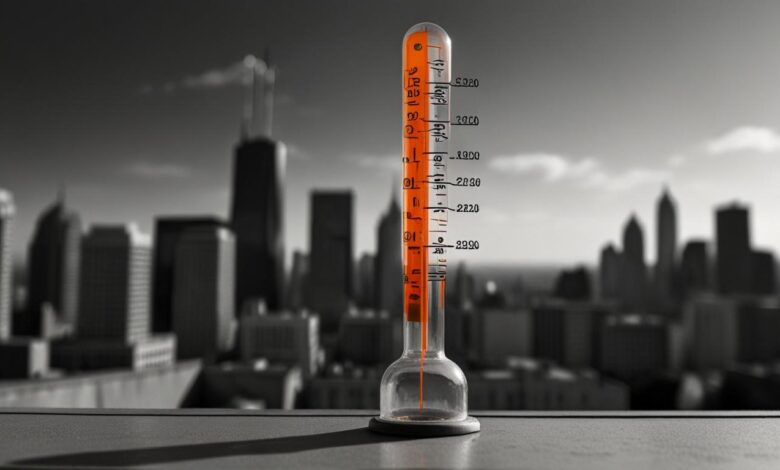Philadelphia Braces for First Summer Heat Wave as Record Temperatures Soar

A scorching heat wave is set to sweep Philadelphia from Monday, with temperatures expected to skyrocket past 100 degrees by the end of the week. Over 135 million Americans in the Midwest, Great Lakes, Northeast, and Mid-Atlantic regions will swelter in the heat, with cities like Chicago and New York also bracing for extreme conditions. The National Weather Service warns of potential drought and urges precautionary measures to combat the stifling temperatures.
Philadelphia is set to experience its first official heat wave of the summer, beginning Monday, June 17, 2024. The heat wave is predicted to last through Saturday, with temperatures rising progressively throughout the week. According to Sarah Johnson, a meteorologist with the National Weather Service in Mount Holly, highs will reach around 90 degrees initially and peak near 100 degrees on Thursday and Friday. A heat advisory has been issued through Wednesday, with an excessive heat watch extending until Saturday night.
The heat wave will affect not only Philadelphia but also much of the Midwest, Great Lakes, Northeast, and Mid-Atlantic regions. The National Weather Service forecasts that more than 135 million Americans will experience temperatures above 90 degrees, with some areas potentially exceeding 100 degrees. Cities expected to be notably impacted include Chicago, St. Louis, Indianapolis, Detroit, Cleveland, Cincinnati, Pittsburgh, New York City, Baltimore, and Washington, D.C.
The heat wave’s duration is particularly notable, with forecasted temperatures remaining high even during nighttime, offering little relief. This event could potentially tie or break temperature records that have stood for decades in various locations. The extreme temperatures are attributed to a heat dome, a high-pressure area that traps warm air and intensifies heat over time.
Additionally, rapid onset drought conditions are possible in the eastern Corn Belt and Mid-Atlantic due to the prolonged high temperatures and lack of rainfall. The National Weather Service has advised residents to stay hydrated, wear light clothing, and limit outdoor activities during peak heat hours.








